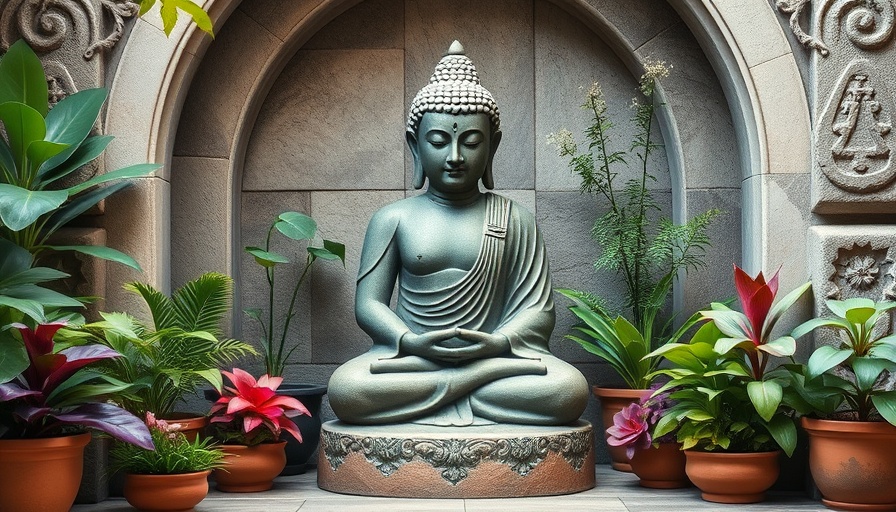
Understanding the Essence of Enlightenment
The concept of enlightenment is central to Buddhism, and the Diamond Sutra illuminates this profound journey towards understanding reality. In a dialogue between Subhuti and the Buddha, the essence of this journey is described: attainment is not about gaining something tangible but recognizing the inherent emptiness of all things. The Buddha's assertion that "there was nothing whatsoever for me to attain" challenges our conventional perceptions of success and achievement.
How Emptiness Can Help Alleviate Mental Health Issues
This realization of emptiness can resonate deeply with those grappling with daily challenges such as anxiety and depression. The teachings remind us that clinging to material desires or emotional struggles can perpetuate our suffering. For many, this understanding can serve as a pivotal moment in their mental health journey, encouraging them to embrace coping strategies that center on mindfulness and self-acceptance.
The Buddhist Perspective on Mental Health Awareness
Buddhism offers a unique framework for understanding mental health. Viewed through the lens of the Diamond Sutra, the realization of nothingness can lead individuals to explore cognitive behavioral therapy and mindfulness practices. These methods help individuals comprehend their thoughts and feelings without attachment. By practicing mindfulness, those suffering from anxiety disorders, including generalized anxiety disorder (GAD) and social anxiety, learn to observe their experiences rather than judge them, thereby reducing the stigma attached to mental health issues.
Empowerment Through Letting Go
The journey to empowerment begins with letting go of attachments—attachments that manifest as anxiety, panic attacks, or depression. The teachings of the Diamond Sutra encourage individuals to release these burdens, fostering a healthier mental state. Meditation and other relaxation techniques, such as deep breathing exercises and yoga for anxiety, align with this principle, providing practical tools for calming the mind and body.
Community and Support: The Importance of Connection
For those who feel isolated due to mental health struggles, seeking support is imperative. Buddhist teachings emphasize community and the interconnectedness of all beings. Support groups, counseling, and peer support can create environments where individuals feel understood and less alone. Beginning this journey often requires reaching out, whether it’s through traditional therapy or community outreach programs that encourage dialogue around mental health.
Practical Insights: Actionable Steps for Mental Wellness
As individuals begin to recognize the emptiness of their attachments, they can implement actionable coping strategies. These include developing self-care routines, exploring therapies such as art or music therapy, and utilizing anxiety management apps designed to support mental health. Furthermore, embracing early intervention programs can help create pathways to improve mental wellness before challenges escalate.
Conclusion: The Call for Mental Health Awareness
The dialogue from the Diamond Sutra invites us to reflect on our own perceptions of attainment and fulfillment. By recognizing the emptiness of our struggles, we empower ourselves to seek healthy strategies for mental wellness. Let us commit to fostering a community that supports mental health education, reduces stigma, and encourages open conversations about feelings and struggles. Together, let’s break down the barriers that prevent us from achieving true peace and understanding.
 Add Row
Add Row  Add
Add 




Write A Comment